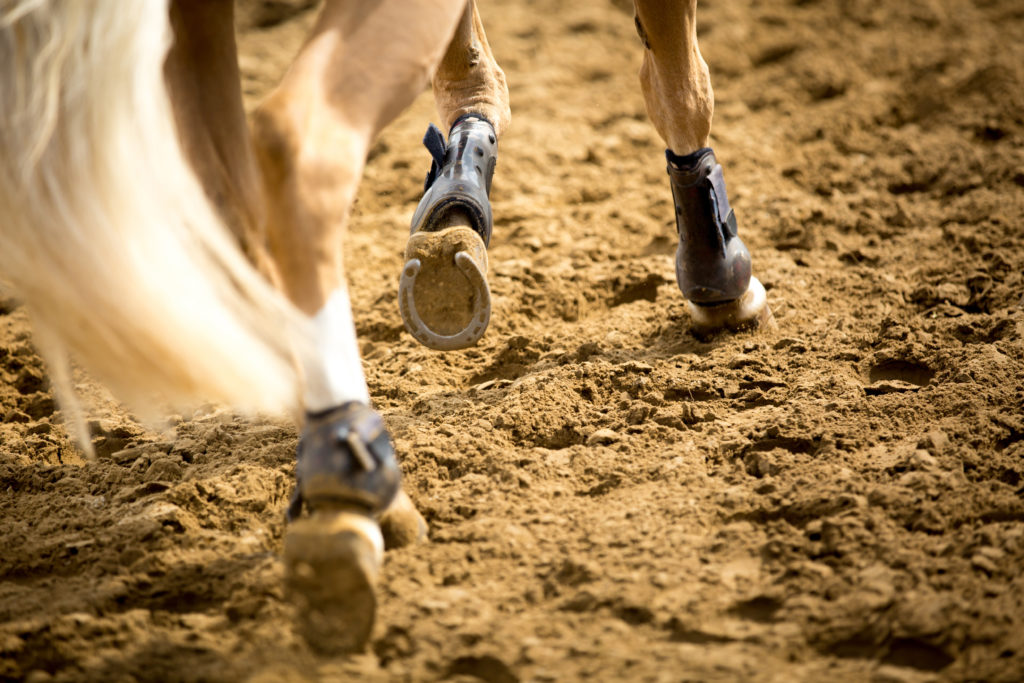
Your Horse’s Feed: From Field to Feed Bag
Equine nutritionists share details about how your horse’s feed is made and what quality controls are in place to ensure he’s consuming a safe product.
All aspects of caring for performance horses

Equine nutritionists share details about how your horse’s feed is made and what quality controls are in place to ensure he’s consuming a safe product.

These feeds are designed to boost horses’ calorie intake and meet additional nutrient needs that increase with work.

Bisphosphonates are FDA-approved for controlling clinical signs associated with navicular syndrome in horses ages 4 and older. Some veterinarians use them off-label to treat other equine bone issues. But could this off-label use be detrimental? One equine veterinarian recently gave a rundown on what research says.

Aside from footing, a number of factors could be contributing to catastrophic injuries. What would it take to definitively pinpoint a cause? Dr. Peta Lee Hitchens, who has an interest in the epidemiology of racehorse breakdowns, explains.

Riding before your horse gets fed could put him at risk for gastric ulcers. Find out why.

Complete veterinary-record transparency, strict limitations on pain-relieving and/or anti-inflammatory medication/treatment, and banning therapeutic medications or treatments without a qualified veterinary diagnosis from a state-licensed veterinarian are among the agreed-upon initiatives.

Researchers confirmed that ultrasound is a useful and economical screening tool to identify humeral stress fractures and can be used with radiography to monitor healing.

Learn about what causes horses to experience back pain, how it’s diagnosed, and how to make your horse more comfortable.

Learn about the current challenges of medication regulation and drug testing in the race and sport horse industries.

Multiple hoof-related factors can affect a horse’s performance—including balance, trim, shoes, pads, support materials, and more. Here’s how farriers can help a horse reach his potential.

Finding the cause of 21 equine fatalities at Santa Anita Park, in Arcadia, California, is key to the future of not only the venue but also the horse racing industry in general, says a Kentucky-based scientist investigating the incidents.

Learn about veterinarians’ current understanding of navicular syndrome with these articles, downloads, videos, and more. Sponsored by Dechra Veterinary Products.

While physicians have used capsule endoscopy in humans for more than a decade, it’s only recently become commercially available on the veterinary market for dogs and shows promise for use in horses.

Learn more about alfalfa and whether this leafy green legume is a good choice for your horse.

A performance horse’s diet must supply all the energy to remain at his best. But achieving that can be easier said than done. Here’s what to remember.

Recognizing and treating club feet in young horses can help them succeed in their intended discipline and, ultimately, prevent lifelong hoof complications.
Stay on top of the most recent Horse Health news with
Notifications